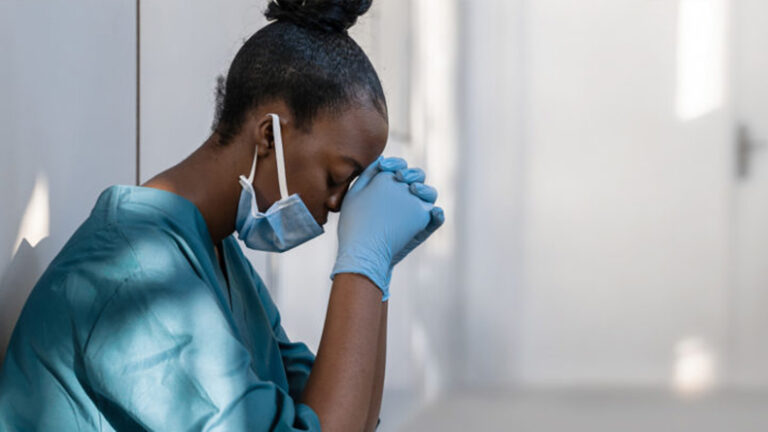Oklahoma State University is facing lawsuits over allegations that Carlos Risco, Dean of the College of Veterinary Medicine, harassed, retaliated against and ultimately terminated a decorated employee in order to chill growing concerns about his leadership, and then successfully solicited the University President, Provost and Board of Regents to enforce his intended message in order to keep information he perceived as damaging from the American Veterinary Medical Association, the Oklahoma legislature and the public during ongoing lobbying efforts for tens of millions in taxpayer cash as well as impending accreditation reviews.
Update: This article has been updated to add additional reporting regarding motives on the part of the University Board of Regents, President, Provost and Dean of the College of Veterinary Medicine.
In the process of reporting this story, CVM Independent interviewed more than two-dozen people with direct knowledge of the circumstances; reviewed hundreds of documents including personnel files and communications to and from the Dean, Provost, Teaching Hospital administrators and others; and reviewed dozens of hours of audio recordings of conversations between various people and the Provost, Dean, Human Resources personnel, Hospital Director, Hospital Administrator, various Teaching Hospital supervisors, the Board of Regents and others.
This story is reported in four parts:
- Part One (October 13, 2023): circumstances surrounding the termination and alleged motives of College leaders
- Part Two (upcoming): a provably fraudulent cause for termination, broken University fail-safe protocols, and a University cover up
- Part Three (upcoming): University lobbying and politics, accreditation at risk, and the Dean's declining relations with key stakeholders
- Part Four (upcoming): termination fallout, the University's self-inflicted liabilities and matters of conscience
"The bigger problem for the University isn't that the Dean did this, it's that they bent over backwards to protect him afterward."
In December, 2022, the Dean of the College of Veterinary Medicine did something he had not previously done: he summoned an employee at least three levels subordinate to him to his office and personally fired her, and then sent an all-users email to the entire College and Teaching Hospital staff announcing that he had done so. The termination of this employee, who had been nominated by the Teaching Hospital staff to speak to him on their behalf about problems they were experiencing, created a shockwave that reverberated throughout the Teaching Hospital team. Many drew the same conclusion: the Dean fired this employee to send a message to the rest of the team not to speak up about problems at the College.
The termination was unusual for another reason: The Dean followed no established University policies and procedures when he fired this employee. University policy outlines several corrective steps that should occur before an employee is terminated, yet the Dean followed none of them. He did so, he claims, because the employee had done something so egregious and out of character - blurting obscenities in a meeting - that he had no choice but to personally fire her without due process or investigation.
He did so apparently unaware that the meeting in question had been recorded and that his manufactured premise for termination was provably false. Multiple attendees of the meeting confirmed to CVM Independent that the alleged outburst did not occur - and that no one from the University contacted them to verify whether the alleged act occurred or not.
The terminated employee appealed the Dean's decision through University procedures. A Grievance Committee - an objective University 'jury' that included no personnel from the College of Veterinary Medicine - was empaneled to review the matter. Upon listening to testimony that included a clear admission from the College head of Human Resources that she conducted no investigation into the matter, the jury overturned the Dean's personal termination of this employee, and ordered the University to reinstate her with back pay and a raise.
At that point, the University Provost stepped in to overturn the panel's decision, repeating the Dean's false claims and also conducting no inquiry of her own into the matter - except for talking to the Dean.
With both the Provost and the head of College Human Resources each conducting no inquiries - and each disregarding the findings of the only inquiry conducted into the matter by the Grievance Committee - the Dean was ultimately successful in terminating the very person his own staff had nominated to effectively blow the whistle on their workplace issues without cause, and with no due process.
Still, when the University President, Provost and the Board of Regents later became aware that conclusive evidence existed proving that the Dean and Provost had terminated an employee on a false premise, none of them made efforts to review the recording or open an inquiry. The attorney for the Board of Regents did, however, attempt to open a settlement discussion with the terminated employee, who promptly retained a more powerful law firm after alumni created a legal defense fund.
So why would the entire senior leadership apparatus of a public university take such an interest in ridding themselves of a $17/hr employee several rungs below the Dean of the College of Veterinary Medicine?
"Self-preservation, money and politics," said one person with knowledge of the College's internal affairs as well as the politics surrounding the University's legislative lobbying efforts at the time. "They were lobbying the Oklahoma legislature for tens of millions of dollars and telling them the problems at the College were basically just old facilities and low budgets - they were leaving out the hostile workplace stuff, the fact that people were quitting on this Dean left and right, nobody would come work him, the internal self-dealing stuff. He was desperate to convince the new University President and the Oklahoma legislature that he had everything under control and all of them were trying to run out the clock to get the new appropriations. The Dean had to send a message to the whole staff to stay quiet, and getting rid of the person they all nominated to tell him how bad things were is a pretty powerful way of getting that message across."
"The bigger problem for the University isn't just that the Dean did all this," concluded this person, "it's that they bent over backwards to protect him afterward."
Multiple sources connected with the Board of Regents, the University President and the Provost tell CVM Independent that there is growing concern that the College of Veterinary Medicine will be sanctioned by the American Veterinary Medical Association following its accreditation review of OSU in April of 2024. One source who has deep knowledge of the AVMA's processes said, "They sold the legislature and the Governor a pipe dream that money will fix things. When the AVMA strips accreditation or puts them back on probation it will be a huge story, and a lot of people will owe a lot of answers. They all staked out their excuses already and who they will blame, but if it comes out that they all knew for years and had warning after warning and did nothing, all their excuses and boogeymen fall apart. This is the kind of thing that will lose very senior people their jobs."
CVM Independent contacted Provost Jeanette Mendez, Dean Carlos Risco, and the head of Human Resources for comment prior to publication but received no responses.
A College in Steep Decline
In 2017, the College of Veterinary Medicine was relegated to probationary accreditation status by the American Veterinary Medical Association for a series of "major delinquencies" in key educational and performance standards. Operating with an Interim Dean at the time, the University faced a pivotal moment in the history of the once-proud College as it searched for a permanent, visionary Dean to lead the school back to prominence.
The Search Committee believed they had found such a leader, according to an individual unaffiliated with OSU but who is familiar with the details of that search, and recommended that the University hire a candidate who did, in fact, go on to have tremendous success as Dean - at another University. Following a failed contract negotiation, the top candidate for the job ultimately accepted the same position elsewhere, sending the Search Committee back to square one after nearly two years. Rather than open a new search, the University opted instead to re-consider candidates who were previously declined for the position. One of those previously declined candidates, Dr. Carlos Risco, was then hired as Dean of the College of Veterinary Medicine.
In the years since Dr. Risco's appointment as Dean, the College has experienced a measurable state of steep decline. Nine medical departments have fully or partially shuttered at the Teaching Hospital; more than 50 faculty and staff have left in just the past two years; and the College was rated by deans and faculty of other North American veterinary schools as among the worst in the nation in the 2023 US News and World Report rankings. Recruiting for new talent screeched to a halt as the College's reputation as a toxic place to work spread through the industry. Faculty report being told by administrators to pass students who had failed classes in an effort to gloss over academic challenges.
With AVMA accreditation review around the corner, the College of Veterinary Medicine has substantially declined since it was relegated to probationary accreditation status in 2017. "You already know that OSU's status will require some twisting and straining at the next accreditation go-round," commented one person with knowledge of the accreditation process. "There will be a whole lot of forward-looking consideration because if it was measured on its current state, it's probably in worse shape now than it was."
As matters continued to decline across the College, and particularly the Teaching Hospital, the employee who the Dean would personally terminate had become increasingly vocal on several matters, including a worsening hostile workplace, declining patient care standards, financial mismanagement, illegal activities, and other issues. She had been nominated by the Teaching Hospital staff to represent them to the Dean, where they had expected her to "give it to him straight" in the hopes that he would enact changes to improve matters.
"We actually thought the Dean liked her," said one person, "it was a total shock that he fired her like that. We all knew things were wrong, but she was the one who was speaking up."
Part One of this series looks into the matters that this employee was entrusted by the staff to represent to the Dean on their behalf - and which apparently convinced the Dean to allegedly manufacture a cause for termination in order to suppress efforts by the College staff and others to discuss these matters at all.
2023 US News & World Report ranking of US Veterinary Colleges shows OSU falling to the bottom (Source: US News & World Report)
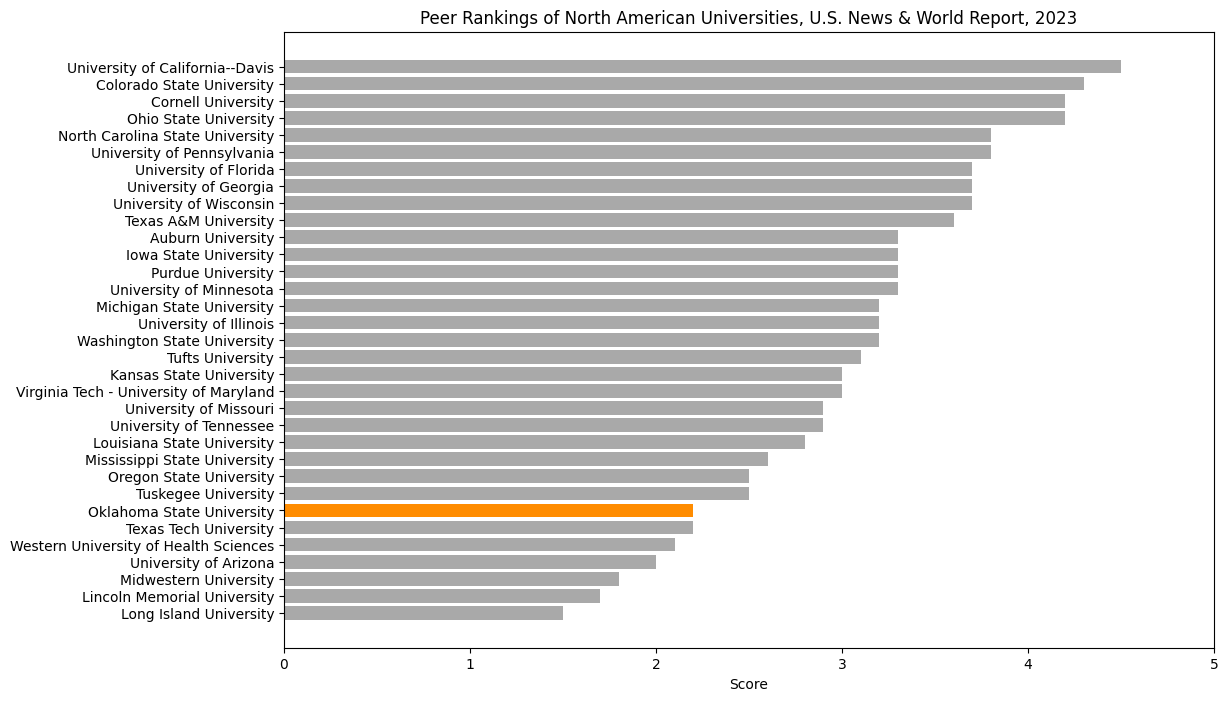
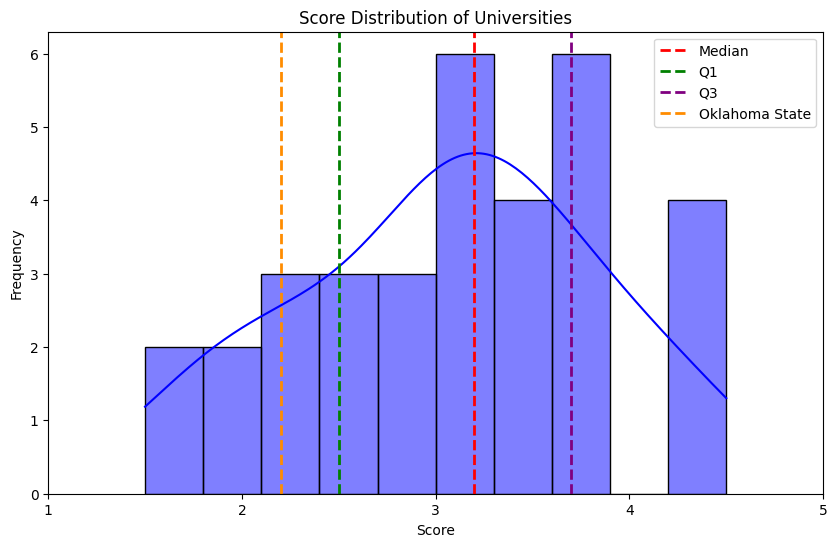
CVM's culture of "gossip and lying"
In July of 2021, the then-Hospital Director sent an email to his senior staff to address rampant "gossip and lying" that was creating "significant tension" within the team. This meeting and email are among dozens of documented discussions of various types reviewed by CVM Independent regarding a toxic workplace that had slowly developed since the Dean took office six years ago, but by 2021 was rapidly worsening.
Two recipients of this email, a College Human Resources employee and a nurse supervisor of the troubled ICU team, emerge not only as key players in the Dean's termination of a highly decorated employee, but also the overall negative atmosphere of the Teaching Hospital in the years that followed.
These particular individuals are the "most negative people in the building," according to multiple sources who shared detailed information and experiences working with them, including emails, meeting notes, and audio recordings that several staffers kept in order to protect themselves against retaliation.
"That meeting was about those two people for the most part," said one person with direct knowledge of both the meeting and the circumstances leading up to it. "They were protected for so long. Basically they were un-fireable. No one wanted to work for [the supervisor] because she was so dramatic and negative, everyone who works for her quits or gets fired. But she was best friends with the other one in Human Resources, so nobody did anything about it."
Matters only worsened in the years since the then-Hospital Director chastised his senior staff about rampant "gossip and lying," with the summer of 2022 appearing to be a flashpoint.
In June of 2022, a letter representing 47 alumni was sent to the Provost warning of an emerging “toxic culture in the clinics and perhaps elsewhere which was believed to be related to the management style” of the Dean, in their opinion. The alumni warned that such a toxic workplace culture had caused a “mass-exodus of qualified and engaged clinical people.” Further, they explained, their relationship with the Dean had broken down, having “expressed these concerns to the management with the result being little to no acceptance of responsibility” and “diversion of the subject” in an attempt to “paint a rosy picture” for his superiors and uninformed stakeholders.
Later that summer, Dean Risco held what several employees characterized as an "emergency meeting" with key staff members to discuss the worsening toxic work environment at the College. CVM Independent reviewed an audio recording of this meeting, in which the Dean told the troubled staff, "you have just told me what I did not want to hear" regarding the destructive work environment employees were experiencing, and the poor quality of medical care provided by the Teaching Hospital.
Multiple staff members, including some who stated they had been employed at CVM for over a decade, told the Dean visceral stories of their experiences working there. Some staff who addressed the Dean were audibly sobbing. One said she cries in her car before coming on shift. Another, who multiple people vocally agreed with, claimed the quality of medicine offered at the Teaching Hospital is so poor that she would not trust her own animals there - a sentiment even the Dean agreed with when he shared a personal story about being nervous about the quality of care his neighbor had received at the Teaching Hospital.
Around the same time, the Dean hosted a private meeting with key alumni in McElroy Hall in which several expressed concern about what they, too, believed was a "toxic workplace" that was driving away faculty and staff, and making recruitment more difficult. According to people who were present at this meeting, the Dean "tried to minimize the whole notion that anything was wrong" and would only refer to the apparent challenges as simply an issue of "low morale" that was getting better under his watch.
Yet a year after this meeting and two years after the then-Hospital Director had discussed a culture of "gossip and lying," things had significantly worsened. In September of 2023, a new Hospital Director acknowledged in blunt terms the deeply-seeded workplace toxicity and hostility he found when he took the job, which he believed was eroding staff faith in leadership and negatively impacting medical standards, patient care and the College's reputation, according to slides he presented to the staff at one of his first meetings with them. Those slides, shown here, run counter to the Dean's narrative over the years that the College only suffered from a bit of "low morale" that was improving under his watch.
"If you just made a simple graph that measured workplace culture over the six years this Dean has been here, it would curve straight down to misery," said a person familiar with the performance of the College of Veterinary Medicine over the last decade. "The longer he's here, the worse it gets. Don't take my word for it, you can literally measure his performance in people quitting, failure to recruit, high turnover, loss of services, tanking ratings, all standard metrics that any competent organization would identify immediately and correct. But here, they just double down on him."
Email from Hospital Director addressing culture of "gossip and lying" in 2021
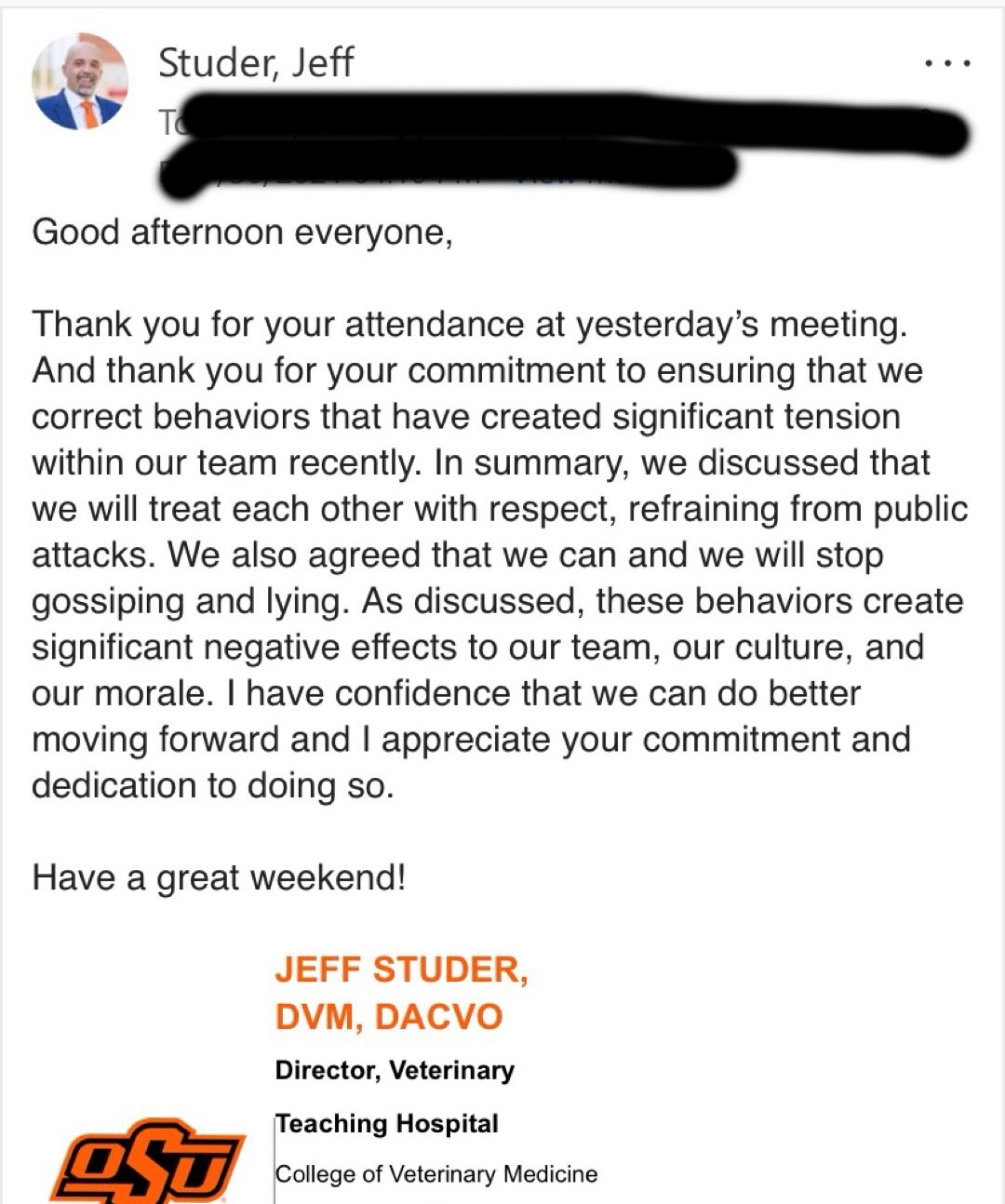
Slides presented to the full staff by the new Hospital Director discussing troubled culture, deficient practices in 2023
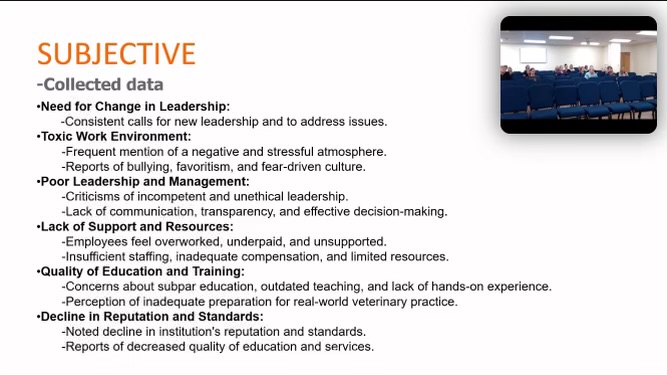

Staff overwhelmingly report a negative work experience at the College and Teaching Hospital (source: 2023 opt-in, anonymous survey)

"The dog was basically cooked to death"
By 2023, medical standards were in steep decline across the Teaching Hospital as 9 medical departments had fully or partially closed since the Dean took office, but nowhere were patients more at risk than in the ICU where several doctors and staff members had recently quit, leaving the team short staffed.
By then, the University President, Dr. Kayce Shrum, had experienced the seriousness of this decline in medical standards first-hand. Her family's dog nearly died in the care of the ICU team following a blood transfusion, according to individuals with direct knowledge of the case. Where 24/7 cage-side monitoring by skilled medical professionals is standard, Dr. Shrum's dog was left in the hands of an untrained student, who did not readily identify the deadly reaction experienced by the patient. Dean Risco received an emergency phone call and personally came to the hospital to monitor the situation. The dog survived, but the University President - an accomplished doctor in her own right - had become aware of the state of affairs at College of Veterinary Medicine nearly four years after Dr. Risco was appointed Dean.
As matters worsened across the emergency and ICU team, the quality of care throughout the rest of the hospital was increasingly impacted. A veterinarian who is an alumni member explained that, while poor medical standards and patient care are troubling in any department, they are "especially unacceptable in your ER and ICU" because it is a "hub department" that both intakes emergency patients and recovers patients from other departments. "If your ICU team is bad, by extension it downgrades all the departments whose patients go through them. A patient who got great care in Surgery or Ophthalmology or Internal Medicine that gets recovered by a bad ICU ultimate gets bad care. Your ICU has got to be top notch or else your entire hospital is in trouble."
For the ICU staff who quit, the issue was primarily their supervisor who one person described as among "the most negative people in the building."
"We couldn't even hire people there," said another. "Some new hires didn't even last a few weeks dealing with [the supervisor]."
Even as the staff shortage threatened patient care, the supervisor of the ICU, apparently weary of scrutiny, began banning experienced nurses from other departments from entering the department without her permission. "She banned a lot of people, including a certified tech, the winner of the whole hospital's Technician of the Year, and [the employee who the Dean personally fired]," said one person who claims to have also experienced this supervisor's retaliatory efforts. "She just did not like anyone around who had any experience to see how bad her department was." These claims were verified by three individuals with knowledge of the situation.
By 2023, issues with medical standards and patient care had become so bad that more than 60% of respondents to a survey disagreed with the statement, 'The Teaching Hospital practices medicine according to the highest standards of the veterinary profession.' When asked whether they 'personally have confidence that patients receive the quality of medical care they deserve' more than 70% disagreed with the statement. 75% of local Stillwater veterinarians disagreed with the statement, 'I trust the Teaching Hospital with my clients and patients.'
These fears appear justified, as several examples of poor patient care make clear, including the tragic, preventable death of a patient due to negligent care.
A bulldog recovering from successful surgery was effectively cooked to death in the ICU unit, according to multiple people with direct knowledge of the incident. The surgery had gone well and the dog had been transferred to the ICU where it was to receive around the clock attention while recovering. Instead, it was left in a climate-controlled oxygen kennel with additional heat support without proper monitoring and adjustment, and by the time the issue was discovered the patient was deceased with a body temperature that was so high the thermometer could not read it.
The dog's owners were told it passed away due to complications from surgery, which multiple people said was not true. "The surgery was successful and while it's technically true, maybe, you could call an issue in recovery like this a complication from the procedure, what really happened was that dog was basically cooked to death."
CVM Independent reviewed photographs of patients recovering from surgery in ICU exhibiting severe urine scalding and infection, and spoke with pet owners who visited their pets in ICU and smelled strong odors of urine and feces. "ICU here is a Petri dish of dirt and germs and bacteria," said a person familiar with the medical standards of the unit, "except when there is an inspection or admin wants it to look good."
Medical standards fell so low that other medical departments began avoiding transfers of their patients to the ICU team for monitoring and recovery. "That was something I never seen before," said a veterinary nurse outside the ICU department. "It's bad at a hospital if one department doesn't even want their own patients to go to another department for care."
The Dean himself acknowledged the poor medicine practiced under his leadership during a meeting with his senior staff, who had requested an opportunity to share their concerns with them. In a session that was offered in person and on Zoom, he shared a personal experience where he expressed concern about the quality of care his neighbor had received when their pet needed emergency care, according to an audio recording reviewed by CVM Independent as well as interviews with attendees.
CVM Independent received patient files from multiple clients of the Teaching Hospital and asked veterinarians outside OSU to review them for quality and adherence to standard industry protocols. Each doctor who reviewed them stated the same thing: the records were unacceptably incomplete, making it hard to understand what care was - and, importantly, was not - provided to the patients. Multiple current and former employees of the Teaching Hospital stated that most files, especially in the ICU, were incomplete and substandard.
"In medicine, both for humans and for pets, the record is the heartbeat of the hospital," said a veterinarian. "Good record keeping allows for continuity of care, accountability, and legal protection. You can tell a lot from how a hospital maintains its records, good hospitals you'll find thorough records and poor ones you'll see the kind of records" maintained by the Teaching Hospital.
Many people expressed concern that students were learning poor record keeping practices which could put them at risk when they graduate. "Every veterinarian faces a complaint of some kind during their careers," said a veterinarian, "and your records are your lifeline when that happens."
Even as patient care was below acceptable standards, the ICU supervisor was accusing other trained nurses of "meddling" in cases when she heard that others might have pointed out deficiencies in care or tended to patients without her consent. The employee who was personally fired by the Dean was among those who were targeted by the ICU supervisor for alleged "meddling." One case that seems to have been at the core of this allegation was a small dog who the terminated employee observed in ICU whose medical treatments were late and whose body temperature was hypothermic. The terminated employee put the dog on heat therapy, marked the medical file, and notified the tending doctor and student of the issues. No one, including the ICU supervisor, has said these were medically improper actions - the only complaint lodged was that the now-terminated employee had helped the patient at all without permission to do so.
"Some of those people interpret help as an admission that they're doing things wrong, rather than just what it is in reality - help," said a person who claims to have witnessed these behaviors from the ICU supervisor. "[The terminated employee] was damned if she does, damned if she doesn't. Do you leave a patient in that situation and do nothing because a supervisor has thin skin and needs control, or do you do what's right and help the patient, and just deal with the supervisor complaints later? Either one gets you fired, apparently."
The bigger issue, according to multiple people, is the overall poor state of the ICU in general. "If you had a well-managed ICU, that supervisor wouldn't always be afraid of people seeing how bad things are. Firing people like [the employee who the Dean fired] and banning good techs from helping patients is a symptom not the sickness and it's stunning that HR wouldn't see that fixing the ICU would fix all these other problems. They let people draw dangerous lines in the sand, like don't help patients, and then fire people for crossing those lines out of some weird view that you can't have people crossing lines, regardless of how stupid the lines are, if that makes sense."
The ICU supervisor would become one of three key witnesses against the employee who the Dean fired, along with an HR official who is described as the supervisor's 'best friend' and the Hospital Administrator, who appears to have an unusual level of personal support from the Dean. Each of these are explored in greater detail in Parts 2 and 3 of this series.
Survey respondents overwhelmingly believe that the Teaching Hospital practices substandard medicine (source: 2023 opt-in, anonymous, online survey)
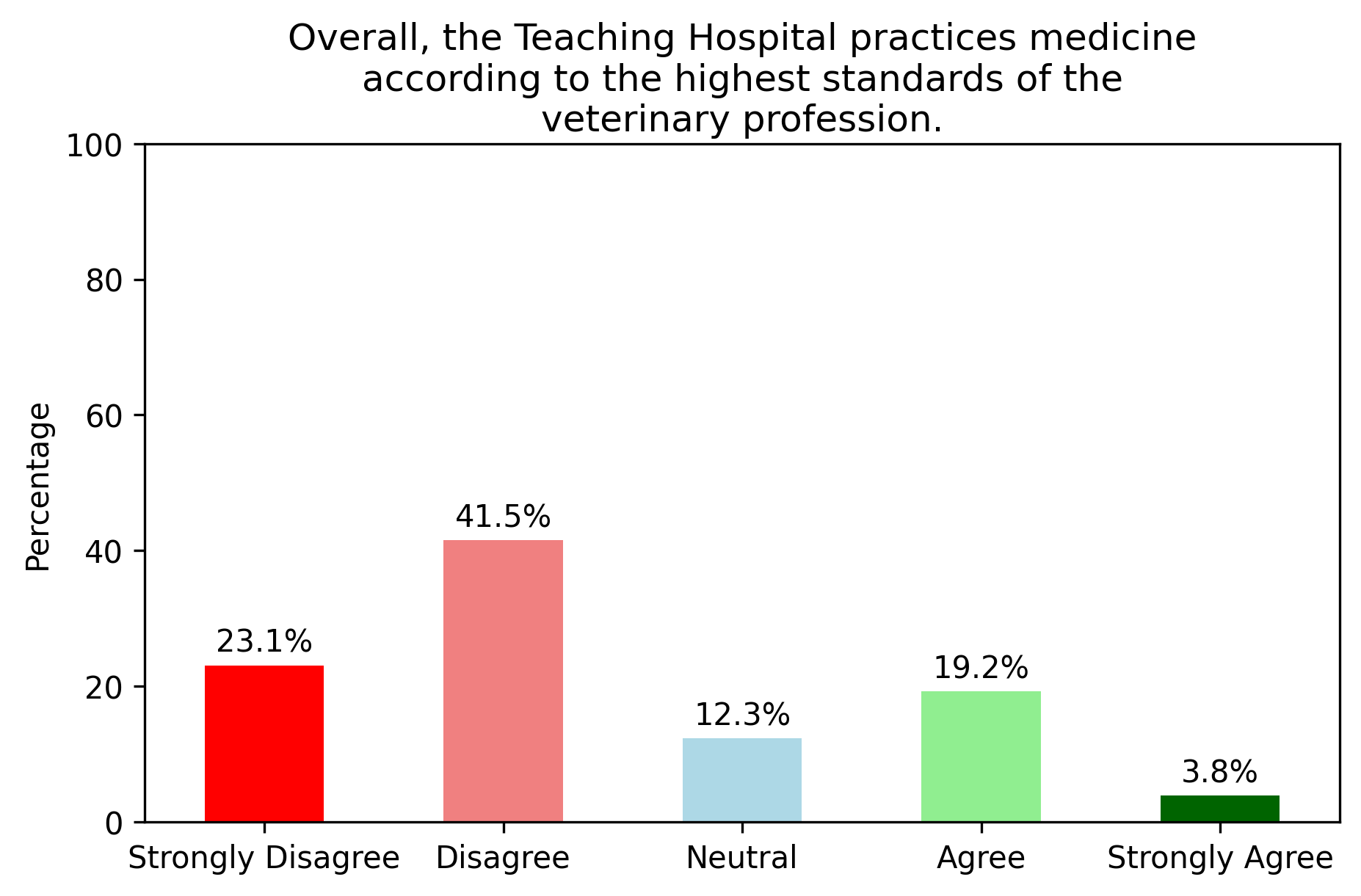
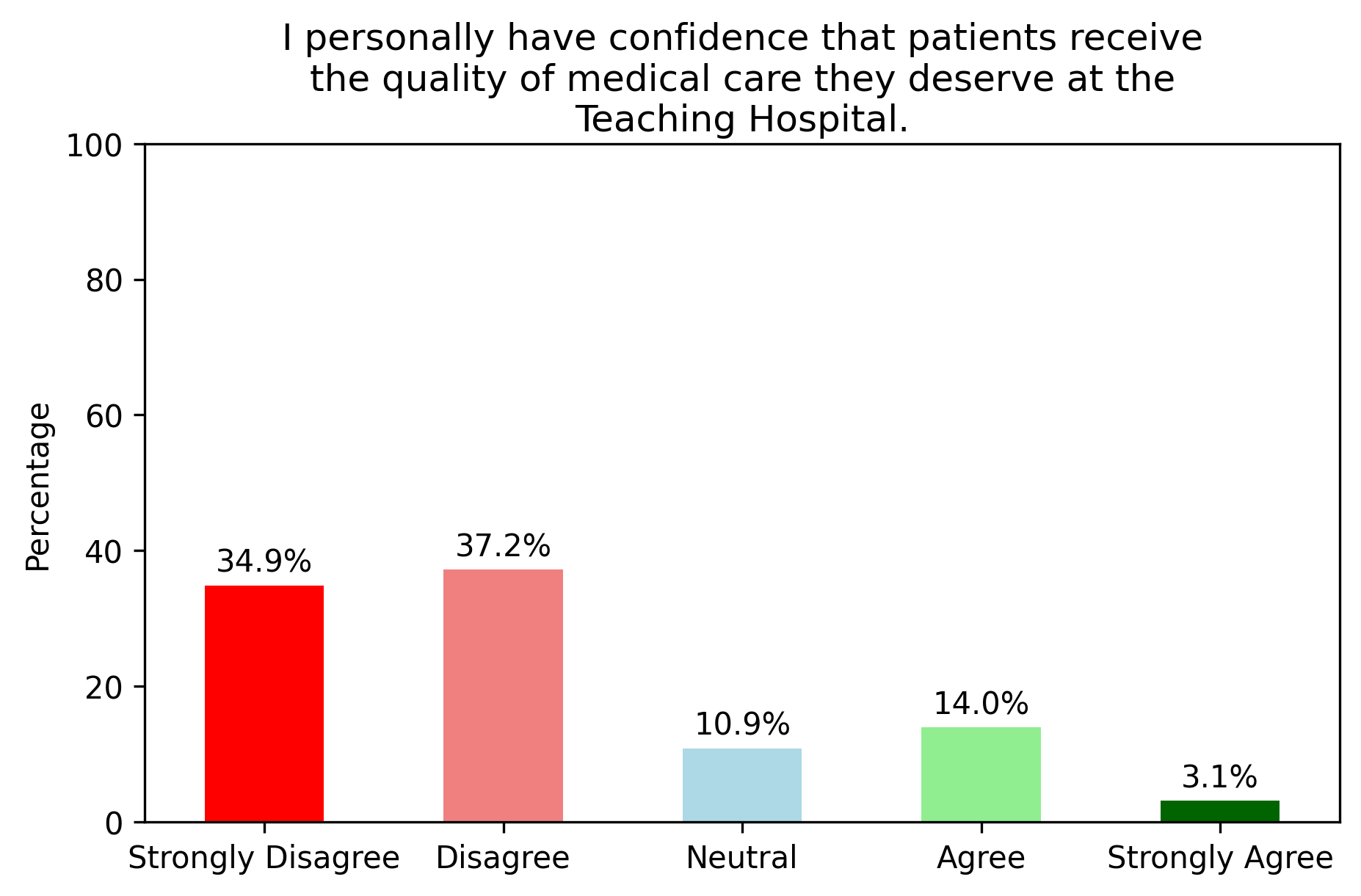

Post-operative patient with severe 'urine scalding' in the Teaching Hospital ICU
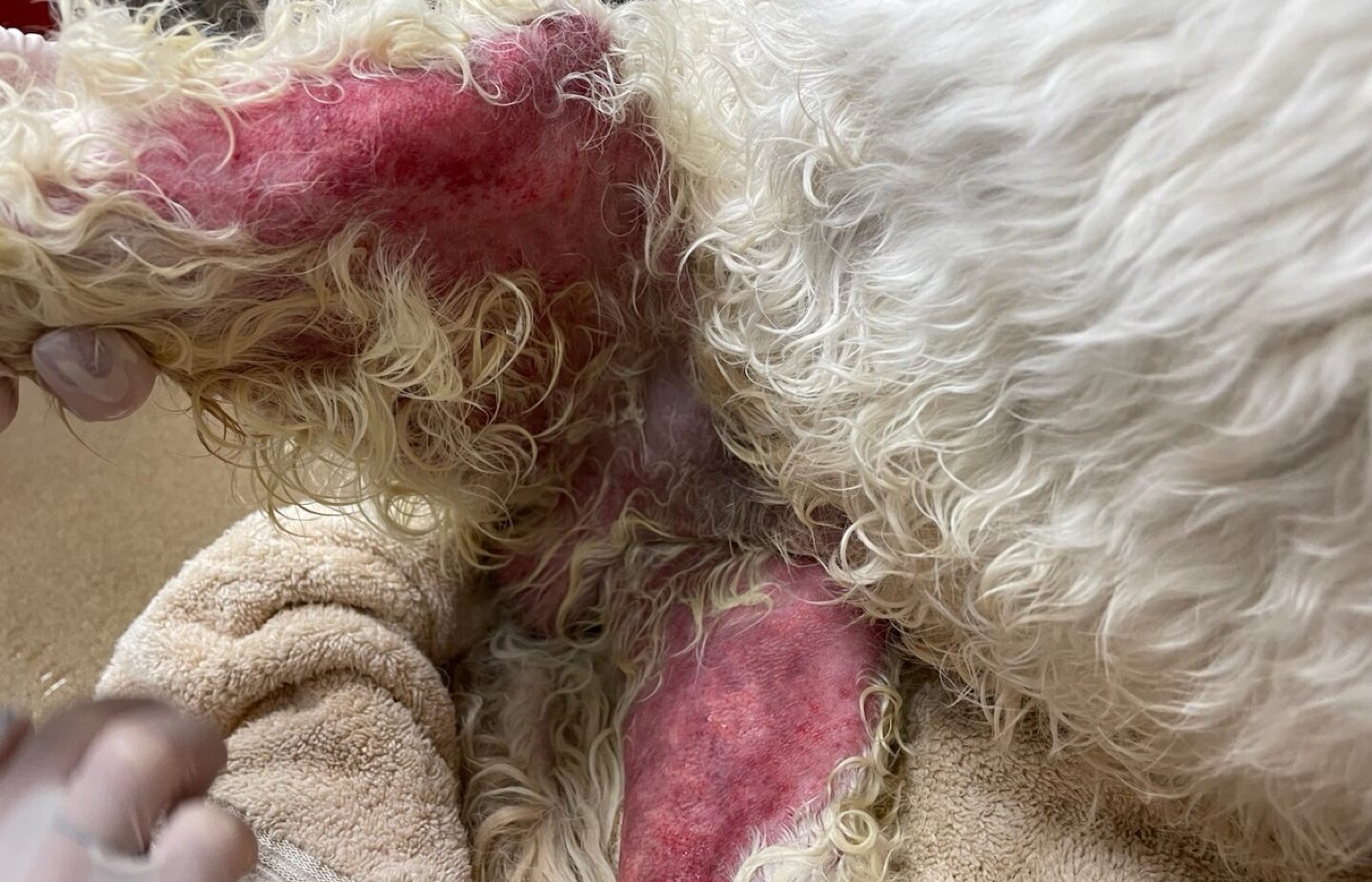
"The way we handle finances here is a disaster"
By 2023, the Teaching Hospital was facing a precarious financial situation. Largely dependent on revenues from payments made for medical services rendered, Hospital funds effectively dried up as medical departments closed due to staff resignations and a worsening reputation in the region caused local veterinarians to cease referring patients. An antiquated pricing structure created an inverted revenue scenario where services and supplies were sold at or below cost, rather than at a markup, such that seeing cases frequently lost money rather than created revenues. Staff tended to lower prices on the fly with clients who did come in, with little accountability or structure to the manner in which these decisions were made. Finally, staff routinely failed to collect full payments from clients which caused uncollected funds to reach into the hundreds of thousands of dollars.
"We were basically giving things away all the time," said a person familiar with Hospital financial matters. "The way we handle finances around here is a disaster."
A significant problem impacting revenues and upending attempts to create normalized billing practices was an over use of 'teaching opportunities' to reduce or eliminate fees charged to clients. "It's supposed to be where let's say a client cannot afford something - legitimately can't afford it, not just doesn't want to pay it - and if we could just do that procedure then students might learn something," explained one person, "but basically a lot of people just used it as an excuse to not charge people for stuff that really didn't qualify." This over use of teaching opportunities not only reduced revenues unnecessarily and creating net losses, but also reduced available funds for circumstances that legitimately qualified. "It was a total abuse of what that is there for," this person concluded.
To make matters worse, employees responsible for collecting client fees often dealt with incomplete patient files, particularly for patients in the ICU/emergency department, which made identifying proper charges far more difficult. "It sucks calling clients to collect payments because half the time they get mad because nobody before me did their jobs and told them what was up with their pet," said one person, referring to nurses and staff involved in patient care who routinely do not properly apprise clients of services and expenses while their pets are in the hospital.
In 2021, a former Hospital Director attempted to correct these significant financial mismanagement issues, creating a new position designed specifically to identify and implement new billing policies. This new position would be responsible for redesigning billing and collections policies, training staff on the new procedures, ensuring staff compliance across the Hospital, and collecting hundreds of thousands of dollars in outstanding client bills.
For the new role, the then-Hospital Director appointed the employee who the Dean would later terminate.
"That's where she learned where all the bodies are buried on finance stuff," said one person familiar with Hospital operations. "She got in there and she found every skeleton and every little favor and side deal that everyone had, and that didn't sit well with a few senior type people."
"It was against the law, pure and simple"
In 2022, the Teaching Hospital hired a Board Certified dermatologist to join the team. The wife of a veterinarian who worked in the College's laboratory, the dermatologist began bulk ordering pre-compounded drugs from her husband, which the College paid for, against Oklahoma state law.
Oklahoma laws and regulations governing compounded drugs, which are substances tailored to a specific patient and condition, are very strict for both animal and human doctors: because they are tailored to particular patients, they cannot be pre-compounded or ordered in bulk.
Multiple Hospital employees grew concerned about the practice and contacted the Oklahoma Board of Veterinary Medical Examiners to confirm their understanding of the law. Having confirmed their interpretation was correct, one employee - the person who the Dean personally terminated - brought the situation up to her supervisor, the Hospital Administrator. A review of email communications on the matter shows the Hospital Administrator telling the employee to stay in her lane, and referring to a special "deal" that the College had apparently made to purchase compounded drugs in bulk - which Oklahoma law expressly forbids - from the dermatologist's husband.
Correctly believing this was against the law, the employee refused to create drug labels for these substances and instead made arrangements with an outside pharmacy to fill compounded drugs, which is standard practice across the veterinary industry. In a lengthy email chain that CVM Independent reviewed, the employee explained her position to the Hospital Administrator and cited the relevant laws as well as made recommendations that would achieve client needs within the bounds of the law. The Hospital Administrator indicated she planned the continue the practice, and available information suggests that the College continued to break Oklahoma law until the dermatologist resigned in 2023.
One person familiar with the matter noted, "The President of the University is a doctor, if she knew about this I would be shocked. If she didn't, what's that say about the people she puts in charge here?"
"HR is totally broken, there's still nowhere to go if you want to speak up"
As 2022 turned to 2023, a troubled College culture was worsening, and the processes the University had in place to identify, mitigate and correct these types of challenges had completely broken down, according to numerous employees and a review of documents and audio recordings.
As the number of people who were leaving the College, whether by resignation or termination, dramatically increased, remaining staff reported having less and less confidence in College Human Resources, according to a 2023 opt-in, anonymous survey:
- 75% disagreed with the statement 'I can trust HR personnel with sensitive issues'
- 70% disagreed with the statement 'Human Resources personnel treat everyone fairly'
- 60% disagreed with the statement 'When people share thoughts or problems with HR, they can be trusted to keep things confidential'
Multiple people told CVM Independent that most people were simply afraid to talk to HR because their issues tended to become fodder for gossip or used against them in a retaliatory manner. "We'd try to talk to HR, and the next thing you know you're called in and getting in trouble by the people you complained about, or they just made it way harder to do your job," said one person, a view widely shared among those who spoke to CVM Independent.
Exacerbating the problem, according to multiple people, is that one HR official in particular is 'close friends' with two Hospital leaders who are the subject of the most complaints to HR, an ICU supervisor and the Hospital Administrator. "If you had a problem with [one of these two people] and you told HR, they knew about it in five seconds," one person told CVM Independent, along with detailed examples of retaliatory behavior which we are not printing here because it would identify the person. "Then good luck, now they just rain down on you because they know you complained about them."
The HR official most often cited as untrustworthy was apparently demoted in late 2023, years after College leaders had become aware of these problems - and only after her involvement in manufacturing the cause of termination used by the Dean came to light. Details of her involvement in that termination will be explored in a later part of this report.
"That band aid was ripped off, good, finally," said an employee. "But how many people got fired because of her and how many people just walked out. How many animals suffered because she protected her best friend [the ICU supervisor]? And why is [the demoted HR official] still even here, didn't she violate all the rules herself? They demoted her for stuff they fire us for."
Yet staff report that trust is still difficult to come by, even now. "HR is totally broken," one said, "there's still nowhere to go if you want to speak up. You could tell HR something, get fired, win a [University Grievance] hearing and have the same people still beat you" by convincing the Provost to overturn the decision. "What's the point of speaking up?"
Survey results suggest the Human Resources system is broken at CVM (source: 2023 opt-in, anonymous, online survey)

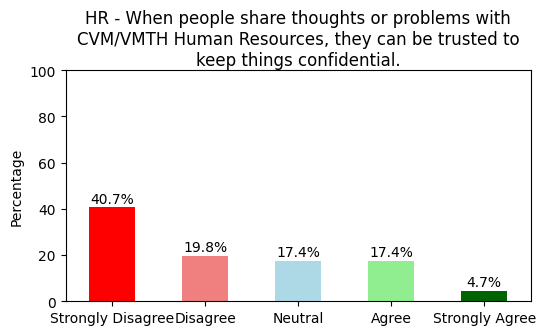
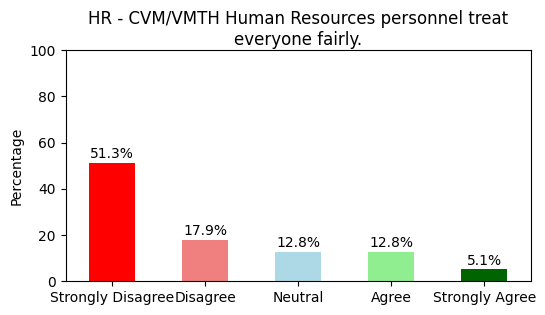
"We chose her to tell the Dean how bad things are, so her fired her."
The Dean's Staff Council is an advisory panel that is meant to directly counsel the Dean on issues throughout the College and Hospital, comprised of employees from each section of the College who are nominated by their peers to speak on their behalf.
As circumstances worsened across the College, two individuals were nominated by the Teaching Hospital staff to represent them on the Dean's Staff Council. Neither of these individuals completed their term. One was personally fired by the Dean and the other quit in part due to troubled interactions with the Dean's chosen Hospital Administrator and the toxic work environment, according to people with direct knowledge of her decision to leave.
Since then, the Dean has refused to allow the staff to nominate replacements, according to employees. "It's all for show anyway," said one. "He does a lot of things like that so he can tell his bosses how great he is at being a leader. 'I listen to the staff' and all that. He really takes it personally if those meetings aren't all about how great he is so he avoids them like the plague now."
In the opinion of one person who had direct knowledge of these matters at the time, the Dean terminated the employee who the staff had nominated to his Staff Council for two reasons.
First, "he really doesn't like people around who go against his narrative that 'everything is fine, everything is getting so much better' and this girl was speaking up on real [issues] for the whole staff and it's like, who are you telling all this to? The person who let it all happen?"
Second, the Dean "was sending the staff a big 'FU' message to shut up or this will happen to you."
Similar sentiments were echoed by several individuals who spoke to CVM on the condition of anonymity for fear of retaliation from their superiors.
"We chose [the employee] to tell the Dean how bad things are, so he fired her," said another person who asked to remain anonymous for fear of retaliation. "He sent us all an email saying she was gone and he never does that. It was his little way of saying 'get with the program or else' is how that email came across."
Upcoming reporting on this story
This story is reported in four parts:
- Part One (October 13, 2023): circumstances surrounding the termination and alleged motives of College leaders
- Part Two (upcoming): a provably fraudulent cause for termination, broken University fail-safe protocols, and a University cover up
- Part Three (upcoming): University lobbying and politics, accreditation at risk, and the Dean's declining relations with key stakeholders
- Part Four (upcoming): termination fallout, the University's self-inflicted liabilities and matters of conscience

